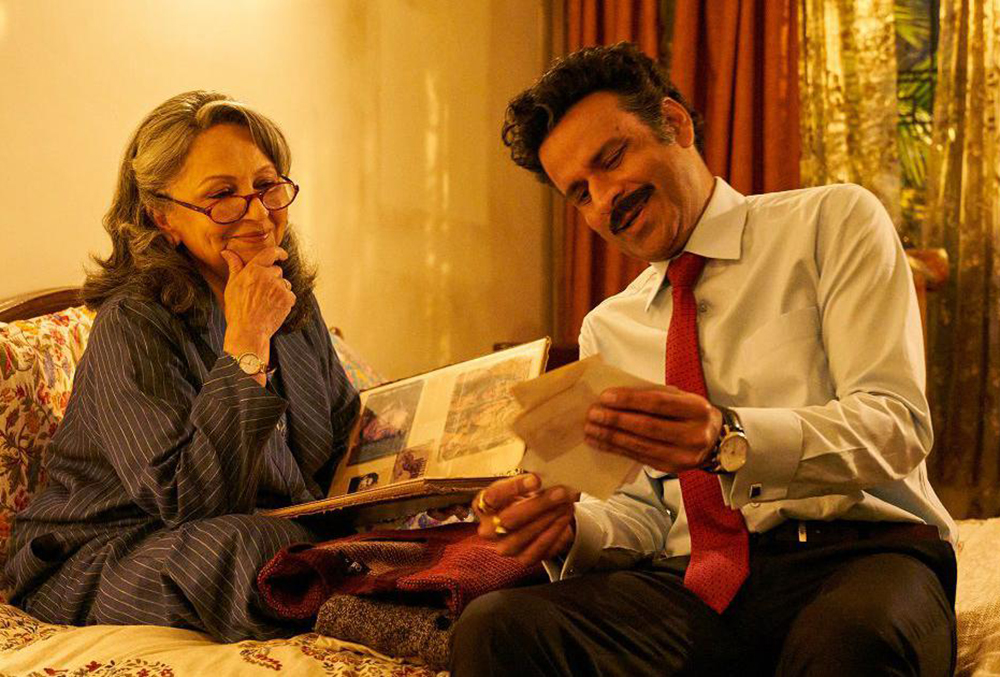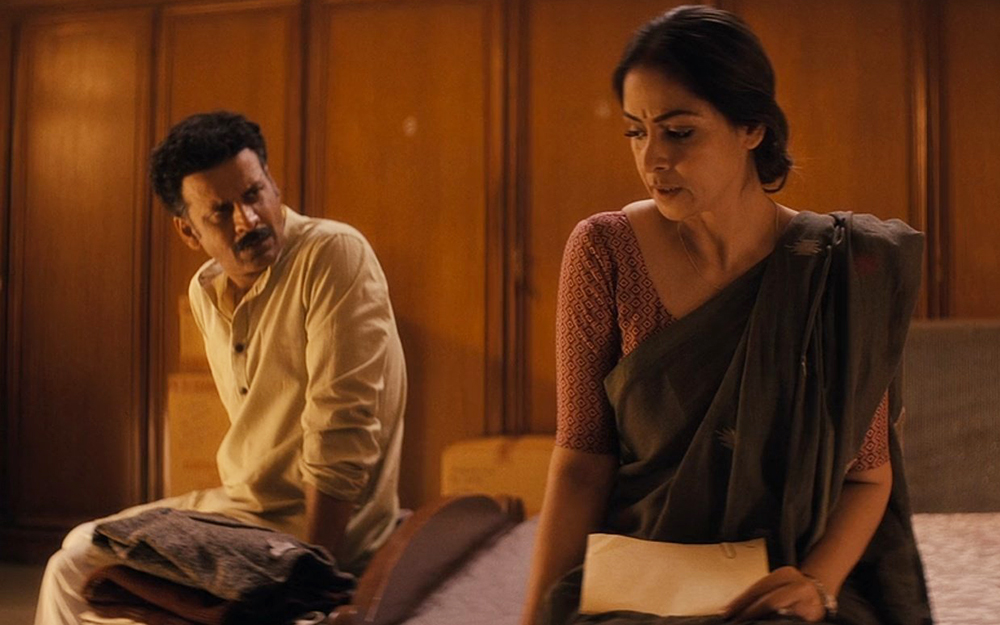Three generations of the Batra family spend their last evening together at their ancestral home (Gulmohar Villa, from which the title is derived) before they prepare to move to a more urban space in the city. As the brief but cozy get-together winds down, the family matriarch drops a bombshell that serves to cause a rift between both the young generation and their older counterparts. It results in some messy revelations for the ‘misfits’ of the family.
A simplistic but altogether thought-provoking family drama, “Gulmohar” largely benefits from Rahul V. Chittella’s intricate direction and his screenplay that offers ample space for each character to develop. Even when the plot progresses at a slow pace, it never bores due to the presence of multiple heart-to-hearts between the characters that revolve around timely topics being discussed in an open-minded and welcoming fashion. The payoff too feels like a warm hug indeed, after watching the characters navigate their respective arcs and their past burdens.
Sharing Similar Notes to ‘Monsoon Wedding’
Considering Chittella’s background as a protege of acclaimed filmmaker (and one of my personal favorites) Mira Nair, the parallels to Nair’s work such as “Monsoon Wedding” too are easily noticeable. This is particularly the manner in which the movie delves into the issues of both the elite family as well as their house help through individual subplots that interconnect thematically. Another positive is its grounded nature; “Gulmohar” steers clear of melodrama, thus allowing each confrontation and character interaction to breathe.
Despite its niche appeal, the movie also boasts a star-studded cast, all of whom are impeccable in their roles and have even won accolades on the film festival circuit. Manoj Bajpayee, who has always been at the top of his game with his versatility as an actor (primarily in critically acclaimed cinematic ventures and currently also relishing his second innings as a bankable lead in the web series space), strikes gold yet again. He gives a subdued performance as the stoic but occasionally docile and vulnerable Arun Batra. He particularly evokes sympathy during the character’s ‘silent breakdown’ in the scene wherein Arun reads out the Last Will and Testament. It harkens back to Bajpayee’s previous performances in movies such as “Shool” or the equally sublime (yet under-appreciated) “Aligarh.”
An Impressive Cast of Characters
Co-star Simran impresses with her body language as Indu, the headstrong and patient wife who is forced to bear the burdens of silently suffering. She compromises on behalf of her husband due to the highly-normalised patriarchal views of her in-laws who strive to put on a poised facade despite numerous differences and hidden skeletons. Her chemistry with Bajpayee feels compelling, especially in scenes wherein Indu acts as a pillar of strength and a supportive shoulder for Arun to lean on.

Jatin Goswami is a revelation as the shy watchman Jeetu, whose arc and overall characterisation often alludes to Vijay Raaz’s wedding planner act in “Monsoon Wedding.” Suraj Sharma, of “Phillauri” and “How I Met Your Father” fame, who debuted in “Life of Pi”‘ alongside veterans such as Tabu and the late Irrfan Kahn has certainly come a long way. He once again matches steps with yet another stalwart (Bajpayee), delivering an endearing albeit underutilized performance as Arun and Indu’s son, Aditya. Aditya is a budding entrepreneur who is often singled out as the black sheep of the Batra family. He also faces frequent competition and unfair comparison with his more ‘successful’ millennial cousins.
A Heartfelt Homage to Family Love
Finally, Sharmila Tagore can be forgiven for her lacklustre intonation, partially as this is the veteran actor’s comeback role. However, her expressions and overall maternal demeanor make up for any flaws in dialogue delivery in the role of family matriarch, Kusum. Emmy nominee Siddhartha Khosla’s background score and soulful arrangements such as “Woh Ghar” further elevate and fit perfectly with the overall homely, wholesome atmosphere too.
While “Gulmohar” might result in the urge to revisit previous forays into family dramas before it, such as “Monsoon Wedding,” “Kapoor and Sons,” etc, it is also worth a watch just as a standalone movie for fans of this genre. It is also very much a heartfelt homage to the relationships and familial love that are both biological and/or adoptive. It provokes one to pause and ponder over its philosophical and inquisitive musings such as ‘what is the measure of perfection in today’s ever changing world?’, and ultimately leaves one choking back tears with a final act that’s both rich and rainbow-esque.
“Gulmohar” is currently available in India on OTT and Disney + Hotstar. It may release in the coming future on Hulu in the US.



